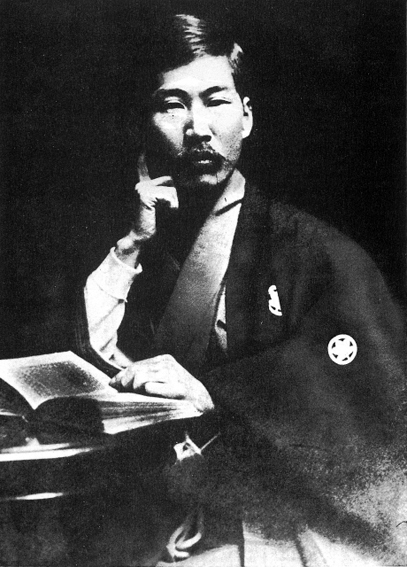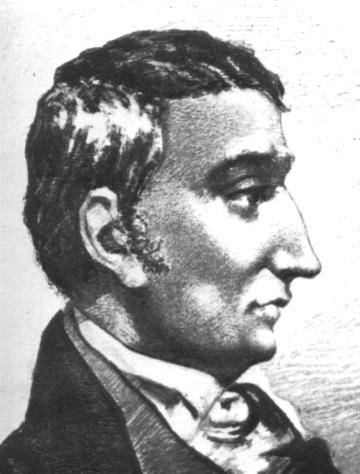|
Heimin-sha
(also spelled ''Heimin Shimbun'') was a socialist and anti-war daily newspaper established in Japan in November 1903, as the newspaper of the Heimin-sha group. It was founded by Kōtoku Shūsui and Sakai Toshihiko, as a pacifist response to the approaching Russo-Japanese War. When the newspaper that Kōtoku and fellow socialist Sanshirō Ishikawa had worked for, ''Yorozu Chūhō'', endorsed the war, they resigned in protest to form the group. Kōtoku Shūsui also served as one of the paper's editors. By the beginning of 1904, it was Tokyo's leading publication advocating socialism. Eighty-two people eventually expressed their allegiance to socialism in this publication. Multiple issues of the newspaper were banned by the Meiji government because they were deemed politically offensive, and editors were arrested, fined, and jailed. The paper ceased publication in 1905. The last issue, published in red, was printed on 18 January 1905. Kōtoku was imprisoned for five months start ... [...More Info...] [...Related Items...] OR: [Wikipedia] [Google] [Baidu] |
Kōtoku Shūsui
, better known by the pen name , was a Japanese socialist and anarchist who played a leading role in introducing anarchism to Japan in the early 20th century. Historian John Crump described him as "the most famous socialist in Japan". He was a prominent figure in radical politics in Japan, opposing the Russo-Japanese War by founding the Heimin-sha group and its associated newspaper, ''Heimin Shinbun''. Due to disregard for state press laws, the newspaper ceased publication in January 1905, and Kōtoku served five months in prison from February to July 1905. He subsequently left for the United States, spending November 1905 until June 1906 largely in California, and he came into contact with other prominent anarchist figures such as Peter Kropotkin. Upon his return, he contributed to a divide within the left-wing movement between moderate social democrats and the more radical advocates of direct action, the latter of whom he supported. The growth of the 'direct action' faction ... [...More Info...] [...Related Items...] OR: [Wikipedia] [Google] [Baidu] |
Anarchism In Japan
Anarchism in Japan began to emerge in the late 19th and early 20th centuries, as Western anarchist literature began to be translated into Japanese. It existed throughout the 20th century in various forms, despite repression by the state that became particularly harsh during the two world wars, and it reached its height in the 1920s with organisations such as ''Kokuren'' and ''Zenkoku Jiren''. Japanese anarchism had a number of notable leading figures who dominated the movement at different times. The first of these leaders was Kōtoku Shūsui, who led the development of an anarchist faction within existing left-wing movements, which then split into its own independent movement in the first decade of the 1900s. Kōtoku was executed for treason in 1911, and the movement was subject to severe repression for a decade. The next leading figure was Ōsugi Sakae, who involved himself heavily in support for anarcho-syndicalism and helped to bring the movement out of its 'winter period', un ... [...More Info...] [...Related Items...] OR: [Wikipedia] [Google] [Baidu] |
Japanese Dissidence In 20th-century Imperial Japan
Political dissidence in the Empire of Japan covers individual Japanese dissidents against the policies of the Empire of Japan. Dissidence in the Meiji and Taishō eras High Treason Incident Shūsui Kōtoku, a Japanese anarchist, was critical of imperialism. He would write ''Imperialism: The Specter of the Twentieth Century'' in 1901. In 1911, twelve people, including Kōtoku, were executed for their involvement in the High Treason Incident, a failed plot to assassinate Emperor Meiji. Also executed for involvement with the plot was Kanno Suga, an anarcho-feminist and former common-law wife of Kōtoku. Fumiko Kaneko and Park Yeol Fumiko Kaneko was a Japanese anarchist who lived in Japanese occupied Korea. She, along with a Korean anarchist, Park Yeol, were accused of attempting to procure bombs from a Korean independence group in Shanghai. Both of them were charged with plotting to assassinate members of the Japanese imperial family. The Commoners' Newspaper The (Com ... [...More Info...] [...Related Items...] OR: [Wikipedia] [Google] [Baidu] |
Common Peoples Newspaper
Common may refer to: Places * Common, a townland in County Tyrone, Northern Ireland * Boston Common, a central public park in Boston, Massachusetts * Cambridge Common, common land area in Cambridge, Massachusetts * Clapham Common, originally common land, now a park in London, UK * Common Moss, a townland in County Tyrone, Northern Ireland * Lexington Common, a common land area in Lexington, Massachusetts * Salem Common Historic District, a common land area in Salem, Massachusetts People * Common (rapper) (born 1972), American hip hop artist, actor, and poet * Andrew Ainslie Common (born 1841), English amateur astronomer * Andrew Common (born 1889), British shipping director * John Common, American songwriter, musician and singer * Thomas Common (born 1850), Scottish translator and literary critic Arts, entertainment, and media * ''Common'' (film), a 2014 BBC One film, written by Jimmy McGovern, on the UK's Joint Enterprise Law * Dol Common, a character in ''The Alchemist'' b ... [...More Info...] [...Related Items...] OR: [Wikipedia] [Google] [Baidu] |
Arahata Kanson
a.k.a. was a 20th-century Japan Japan ( ja, 日本, or , and formally , ''Nihonkoku'') is an island country in East Asia. It is situated in the northwest Pacific Ocean, and is bordered on the west by the Sea of Japan, while extending from the Sea of Okhotsk in the north ...ese labor leader, politician and writer, participating in many of the left-wing movements of the era. References * Japan: An Illustrated Encyclopedia, Kodansha, 1993, v. 1, p. 45. 1887 births 1981 deaths Members of the House of Representatives from Tokyo People from Yokohama Members of the House of Representatives (Empire of Japan) Social Democratic Party (Japan) politicians Japanese Communist Party politicians Meiji socialists {{japan-politician-stub ... [...More Info...] [...Related Items...] OR: [Wikipedia] [Google] [Baidu] |
Publications Disestablished In 1905
To publish is to make content available to the general public.Berne Convention, article 3(3) URL last accessed 2010-05-10.Universal Copyright Convention, Geneva text (1952), article VI . URL last accessed 2010-05-10. While specific use of the term may vary among countries, it is usually applied to text, images, or other audio-visual content, including paper ( |
Publications Established In 1903
To publish is to make content available to the general public.Berne Convention, article 3(3) URL last accessed 2010-05-10.Universal Copyright Convention, Geneva text (1952), article VI . URL last accessed 2010-05-10. While specific use of the term may vary among countries, it is usually applied to text, images, or other content, including paper ( |
Newspapers Published In Tokyo
A newspaper is a periodical publication containing written information about current events and is often typed in black ink with a white or gray background. Newspapers can cover a wide variety of fields such as politics, business, sports and art, and often include materials such as opinion columns, weather forecasts, reviews of local services, obituaries, birth notices, crosswords, editorial cartoons, comic strips, and advice columns. Most newspapers are businesses, and they pay their expenses with a mixture of subscription revenue, newsstand sales, and advertising revenue. The journalism organizations that publish newspapers are themselves often metonymically called newspapers. Newspapers have traditionally been published in print (usually on cheap, low-grade paper called newsprint). However, today most newspapers are also published on websites as online newspapers, and some have even abandoned their print versions entirely. Newspapers developed in the 17th century, as ... [...More Info...] [...Related Items...] OR: [Wikipedia] [Google] [Baidu] |
History Of Socialism
The history of socialism has its origins in the 1789 French Revolution and the changes which it brought, although it has precedents in earlier movements and ideas. ''The Communist Manifesto'' was written by Karl Marx and Friedrich Engels in 1847-48 just before the Revolutions of 1848 swept Europe, expressing what they termed scientific socialism. In the last third of the 19th century parties dedicated to Democratic socialism arose in Europe, drawing mainly from Marxism. The Australian Labor Party was the world's first elected socialist party when it formed government in the Colony of Queensland for a week in 1899. In the first half of the 20th century, the Soviet Union and the Communist party, communist parties of the Third International around the world mainly came to represent socialism in terms of the Economy of the Soviet Union, Soviet model of economic development and the creation of Planned economy, centrally planned economies directed by a state that owns all the means of pr ... [...More Info...] [...Related Items...] OR: [Wikipedia] [Google] [Baidu] |
Japanese-language Newspapers
is spoken natively by about 128 million people, primarily by Japanese people and primarily in Japan, the only country where it is the national language. Japanese belongs to the Japonic or Japanese- Ryukyuan language family. There have been many attempts to group the Japonic languages with other families such as the Ainu, Austroasiatic, Koreanic, and the now-discredited Altaic, but none of these proposals has gained widespread acceptance. Little is known of the language's prehistory, or when it first appeared in Japan. Chinese documents from the 3rd century AD recorded a few Japanese words, but substantial Old Japanese texts did not appear until the 8th century. From the Heian period (794–1185), there was a massive influx of Sino-Japanese vocabulary into the language, affecting the phonology of Early Middle Japanese. Late Middle Japanese (1185–1600) saw extensive grammatical changes and the first appearance of European loanwords. The basis of the standard dialect moved f ... [...More Info...] [...Related Items...] OR: [Wikipedia] [Google] [Baidu] |
Defunct Newspapers Published In Japan
{{Disambiguation ...
Defunct (no longer in use or active) may refer to: * ''Defunct'' (video game), 2014 * Zombie process or defunct process, in Unix-like operating systems See also * * :Former entities * End-of-life product * Obsolescence Obsolescence is the state of being which occurs when an object, service, or practice is no longer maintained or required even though it may still be in good working order. It usually happens when something that is more efficient or less risky r ... [...More Info...] [...Related Items...] OR: [Wikipedia] [Google] [Baidu] |
1905 Disestablishments In Japan
Nineteen or 19 may refer to: * 19 (number), the natural number following 18 and preceding 20 * one of the years 19 BC, AD 19, 1919, 2019 Films * 19 (film), ''19'' (film), a 2001 Japanese film * Nineteen (film), ''Nineteen'' (film), a 1987 science fiction film Music * 19 (band), a Japanese pop music duo Albums * 19 (Adele album), ''19'' (Adele album), 2008 * ''19'', a 2003 album by Alsou * ''19'', a 2006 album by Evan Yo * ''19'', a 2018 album by MHD (rapper), MHD * ''19'', one half of the double album ''63/19'' by Kool A.D. * ''Number Nineteen'', a 1971 album by American jazz pianist Mal Waldron * XIX (EP), ''XIX'' (EP), a 2019 EP by 1the9 Songs * 19 (song), "19" (song), a 1985 song by British musician Paul Hardcastle. * "Nineteen", a song by Bad4Good from the 1992 album ''Refugee (Bad4Good album), Refugee'' * "Nineteen", a song by Karma to Burn from the 2001 album ''Almost Heathen''. * Nineteen (song), "Nineteen" (song), a 2007 song by American singer Billy Ray Cyrus ... [...More Info...] [...Related Items...] OR: [Wikipedia] [Google] [Baidu] |






